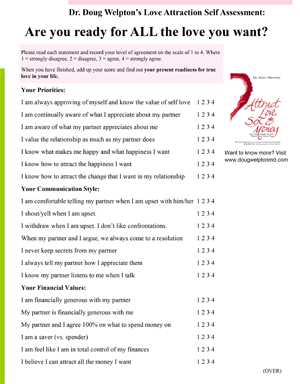Four-thousand miles zipped by as I flew to Hawaii to meet my one month old granddaughter. Dawn is a divine spirit with inquisitive blue eyes and fine, strawberry blond hair. She’s a larger than life spirit, measuring in the ninetieth percentile for both length and weight.
My daughter, Kristen, had to climb a tall mountain to have her first child. She was forty-three and had endured four miscarriages. This pregnancy was diagnosed within a week of conception, and for the first time the doctors immediately gave her Progesterone to prevent another miscarriage. Kristen lived with serious back pain during the final months of her pregnancy. Her delivery was induced ten days after her due date. After fifteen hours of labor, she could not fully dilate. The doctors performed a C section. She was disappointed not to have a birth canal delivery.
Shortly after she started breast feeding, Kristen experienced intense pain nursing Dawn. In spite of the pain she continued to breast feed. Nipple shields, a breast pump, and intermittent bottles allowed her to heal. John, her husband, helped with the bottle feedings knowing how exhausted Kristen was from feeding Dawn every three hours. John is exceptional, just like Kristen. He hand-built their home with ten foot picture windows in the living room which overlook their lawn. He bordered the lawn by planting papaya, star-fruit, and banana trees to provide beauty as well as food.
The night I arrived Dawn was restless and sleepless, which meant that Kristen was tired and exhausted the next day. No one’s fully prepared for their first child. Everything in life needs a dress rehearsal for us to learn what to do. The simple truth is we live the dress rehearsal, especially with our first child. For example, Kristen increased her own liquid intake the next day. She thought that feeding Dawn more milk might help her go to sleep. More milk made no difference.
Holding my granddaughter in my arms brought back memories from when I was ten years old. I ran two miles home after school to meet my mom and my baby sister when they arrived from the hospital. I felt excited having a sister. I bottle fed her, and I helped change and wash her diapers. I ran them through the Maytag wringer and hung them on the clothesline. I enjoyed the power when I swung the wringer over the laundry sinks and shoved the lever to turn the wringer on and off. I had to be careful not to catch my fingers between the rollers. It hurt. If I made a mistake I had to pop the release on the rollers to free my hand. I felt very grown up.
I taught my sister to play football on the carpet indoors using a pair of socks rolled into a ball. I played on my knees. She was quick on her feet. I helped her learn to run fast to score touchdowns. I organized her birthday parties with her friends and taught them how to play pin-the-tail-on-the-donkey.
My sixth grade teacher gave our class an assignment to write an essay about our pets. Everyone wrote about their dogs and cats and parakeets. I wrote about my sister. The teacher picked my paper to read to the class. My classmates hooted at my description of my little sister as my pet.
I have now been with Dawn for four days. We are getting to know each other. I started talking to her and have not stopped even though she can’t answer. I explain to her what I think her cry is saying, and what I’m doing to care for her. She responds to my voice just as she does to the touch of my hands.
Dawn’s only way to communicate verbally with us is her cry. Her cry is powerful. She cries to tell us she is hungry, uncomfortable, or in pain. Kristen says her most challenging problem is her doubt whether she’s doing what Dawn needs done. She guesses as best she can what Dawn’s cry means. It’s trial and error. The uncertainty and not knowing the right course is a major challenge to first mothers, and to any mother as she gets to know and become attuned to her child.
We all make efforts to quell Dawn’s crying. Kristen holds and rocks her, checks whether she is wet, and puts on or takes off her top to keep her from being too warm or too cold. John holds Dawn lying face down on his forearm and walks with her. He puts on music to comfort her. When Dawn cries while riding beside me in the car, at times I cry with her when I can’t figure out what else to do. Dawn looks at me in total surprise and starts laughing. I laugh too. We go back and forth between laughing and crying. Kristen, who is driving, starts laughing too. We relax about Dawn’s crying. The end of the world hasn’t arrived. Other times, when nothing we do stops Dawn from crying, we just let her cry it out. Those times the end of our world is approaching.
As a grandfather watching Kristen with her baby, I saw with new eyes what mothers endure to raise a newborn child. When I became a father with my own children I didn’t appreciate all the devotion and non-stop caring required of a mother to nurture her child. Watching my own daughter face these tribulations woke me up. I’ve grown more empathic with age.
Kristen’s a very good mother. She’s focused on her daughter every minute, caring for her with incredible devotion even when she herself is hungry, exhausted, and tired. There’s little rest for a weary mother. I’ve told Kristen what a good mother she is. A good mother knows she’s not perfect. No parent is perfect. However well we parent we can always do better. Kristen discovers her mistakes and corrects them as quickly as possible. She reads Dawn carefully and adapts as best she can to meet her needs. She’s learning what makes Dawn comfortable and what makes her uncomfortable. She struggles getting Dawn to sleep when her daughter fights going to sleep. Who ever said parenting is easy? It isn’t. It calls us into growth like being successfully married does. We must grow up if we’re going to help our child grow up. We must stop blaming to be good spouses.
John at times joins in care-taking Dawn. He loves to dance with her in front of the TV. He swings her to the beat of “Gangnam Style” by the South Korean rapper Psy. We husbands often don’t know how to help. We’re not equipped to nurse a child. What we can do is support and care for our wives. We need to nurture our wives so they can nurture our child. We can relieve our wives by feeding our newborn, changing diapers, and holding and rocking our baby. We can protect our wives by helping them get rest.
When my first child was born, I was used to being my wife’s primary concern. Suddenly I lost her attention. The first night our son was home my wife set his cradle right beside our bed. Every time he took an irregular breath my wife woke up. I woke up when she awakened. After three nights we both were exhausted. I got up the next night and carried him in his cradle. I put him down in the room next to our bedroom. He did just fine and we cuddled together to sleep. For the moment I had my wife back.
One of our favorite activities was going to the movies. We stopped going because we had a child. After a few months I insisted we go again. We seldom fought, but I changed my tone or raised my voice. My wife found a baby sitter. This godsend was an elderly woman who lived in our neighborhood. From the first night she loved our son. She was like his grandmother, and her babysitting helped us restore our marriage.
I had to learn to be patient, to delay, to give my wife attention, and to realize that she did not have the time or the energy for me she used to have. This was a huge challenge and not an easy one. I was confronted with this dilemma: how to give our baby the attention he needed and still have energy for each other? Having our child brought us together, but it also pulled us apart. No one’s to blame. It’s just reality. Newborns need attention to thrive, and three is awkward number–one person often feels left out.
I have now been with Dawn for two weeks. She focuses on each of us as we care for her. Her mind takes us in as she bonds with us and we bond with her. She tastes her mother’s milk and they lock eyes. There is no baby. There’s a nursing couple. She reads us and we read her through every cell in our bodies. We feel each other’s skin, gaze into each other’s eyes, smell each other, and listen to each other‘s voices and sounds. We dwell in each other.
As a grandfather I have had to confront my impatience. When Dawn cries I want to find a solution immediately. I want to be so effective that I can figure out exactly what Dawn needs and provide it. I want to stop Dawn’s crying by fixing every problem she has, so that Kristen will no longer feel bad about her mothering. I want to know just what to do, so I can show Kristen and John what to do. I want to spare them from having to make mistakes as they find their way through the challenges of being first time parents. When I cannot fulfill these expectations a voice within me says: “You’re failing as a grandfather.”
Suddenly I’m brought up short. A loving voice within says: “That’s your Critic speaking to you. Your Critic’s the voice of pride, of being a know-it-all, of having all the answers, of never making mistakes, of pretending to be omniscient.”
I quickly recognize my Critic, my self-talk voice that knows no patience, no humility, no faith, and no realistic expectations. This is the voice that pretends to be superior but ends up causing me to feel inferior, unworthy, and incompetent.
I determine to rise above my Critic to give my best. I believe my greatest contribution as a grandfather is to be patient. When Dawn cries and can’t be comforted quickly we try all the remedies we know. At those times patience is needed to withstand the uncertainty. I need to be the voice of patience. I need to be the voice that says if we hurry in trying to fix every problem we will make unnecessary mistakes. If we give ourselves time, while trusting in our love and caring for Dawn, we will succeed.
As a grandfather who has raised four children I came on this scene to be a helper. I gradually realized I wanted to be a rescuer too. I now appreciate that patience is more important than rescuing. In truth, patience is the rescue.
*Names changed for privacy


